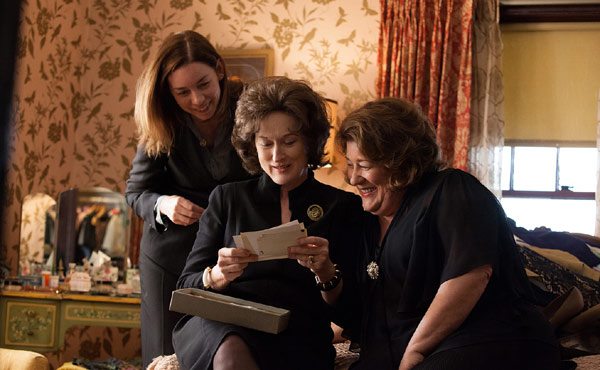
 There is something terribly off-putting about the film adaptation of Tracy Letts’ Tony Award-winning play “August: Osage County” and it might be precisely that it wasn’t appropriately adapted for the medium. Cinema after all demands a kind of acting and writing that vastly differs from the rightfully exaggerated enunciations and revelations of a performance taking place on a live stage, and none of those are present in this film, which instead provides us with scenes that feel more like vignettes displaying acting competitions.
There is something terribly off-putting about the film adaptation of Tracy Letts’ Tony Award-winning play “August: Osage County” and it might be precisely that it wasn’t appropriately adapted for the medium. Cinema after all demands a kind of acting and writing that vastly differs from the rightfully exaggerated enunciations and revelations of a performance taking place on a live stage, and none of those are present in this film, which instead provides us with scenes that feel more like vignettes displaying acting competitions.
The film takes place in the title Kansas county and has Meryl Streep star as cancer-struck Violet Weston, a pill addict coming to terms with the recent suicide of her husband (played in one scene by the effortlessly brilliant Sam Shepard). The plot follows the days after his death and chronicles the dramas brought upon by having the whole family come together. Violet’s eldest daughter Barbara (Julia Roberts) is distant and seems to want to be as far away from her mother as possible, while dimwitted Karen (Juliette Lewis) on the other side wishes nothing more than to be loved by her mom. There’s also Ivy (Julianne Nicholson) who has taken on a mysterious lover she’s afraid to introduce her family, and an assortment of relatives including abused uncles (Chris Cooper), rebellious teenage daughters (Abigail Breslin) and frisky fiancés (Dermot Mulroney).
While Streep is unarguably one of the greatest actresses of all time, her portrayal of Violet has her at her least charming, most obviously “acted” performance in years. She swallows the scenery as expected, but this time around her performance isn’t particularly pleasurable to watch. It’s not that Violet is an ugly character, because she is, but that Streep is never able to become her, especially when surrounded by all of the other members of the cast who all seem to be acting in their own private movie. Lewis gives an absent performance straight out of “The Other Sister”, while Margo Martindale as Violet’s sister is too grating to be captivating (Cooper who plays her husband is great though) and even those giving reasonably good performances, like Roberts, are stuck with complex dialogues that feel unnatural, especially under the circumstances. Those who have never seen the play can detect traces of what made it so praised onstage, but will completely miss out on why it was turned into a movie, if for no other purpose than to earn people some awards at year’s end.